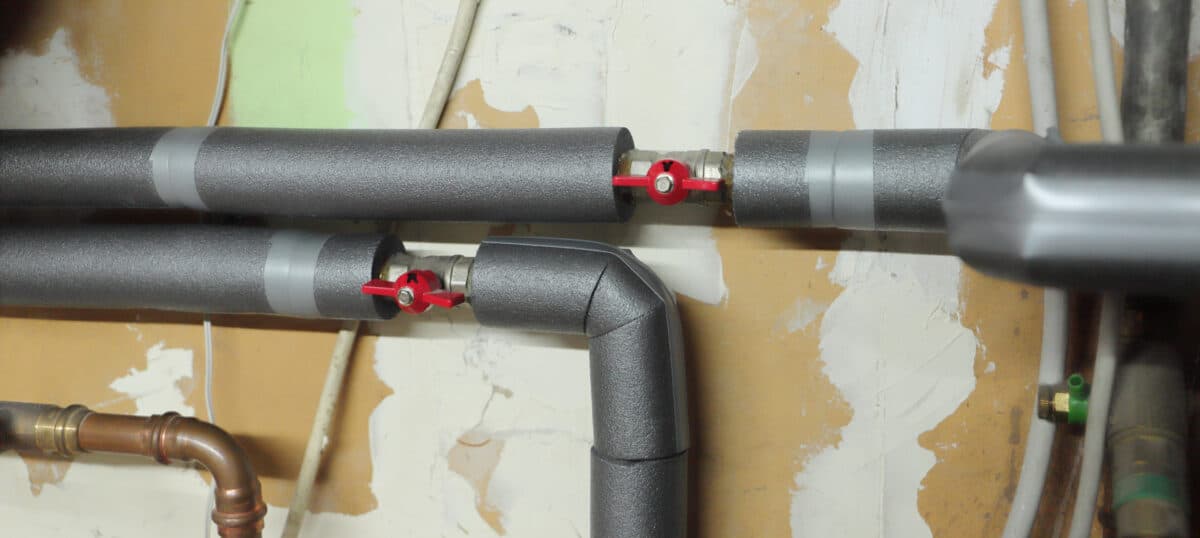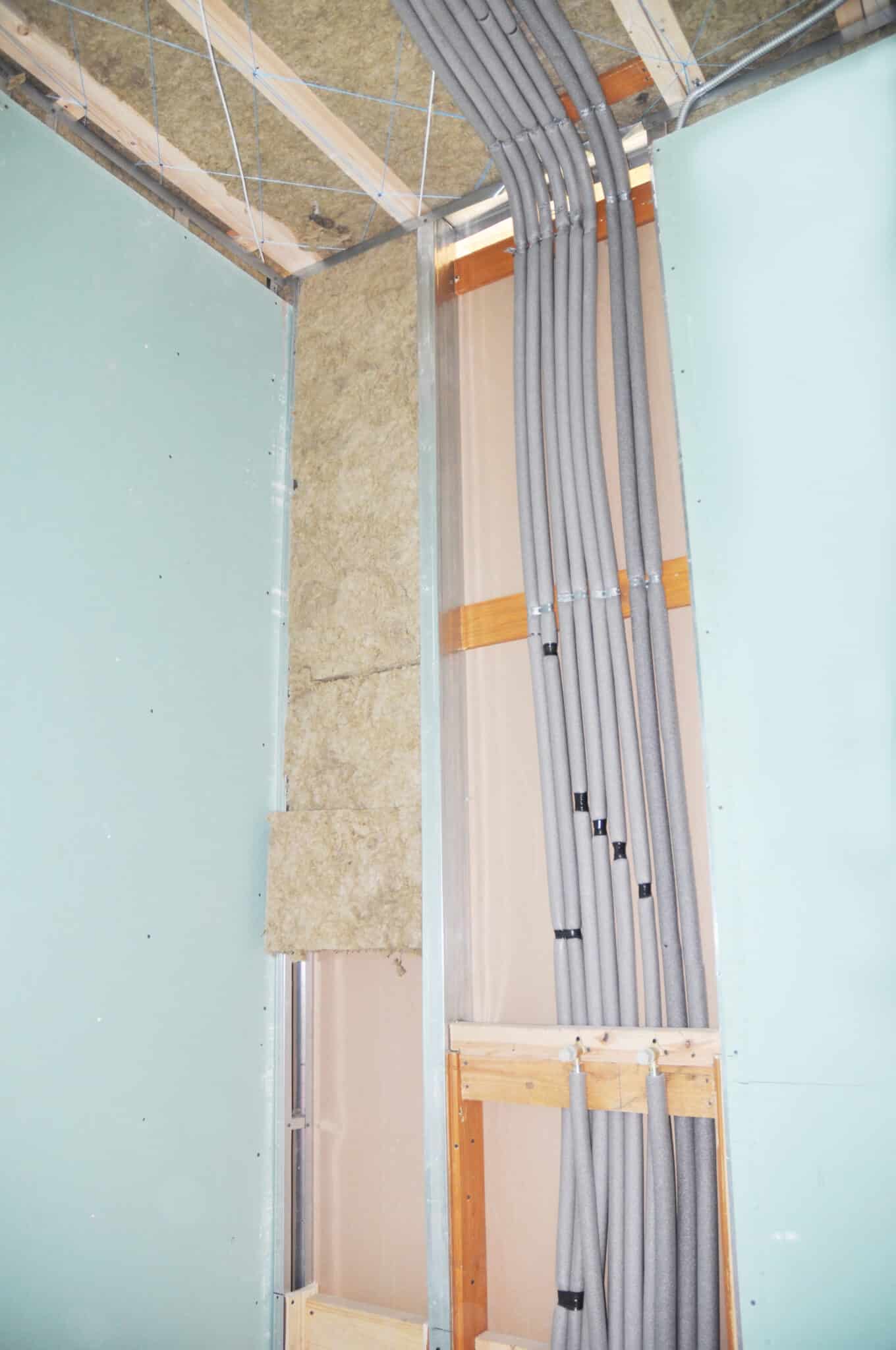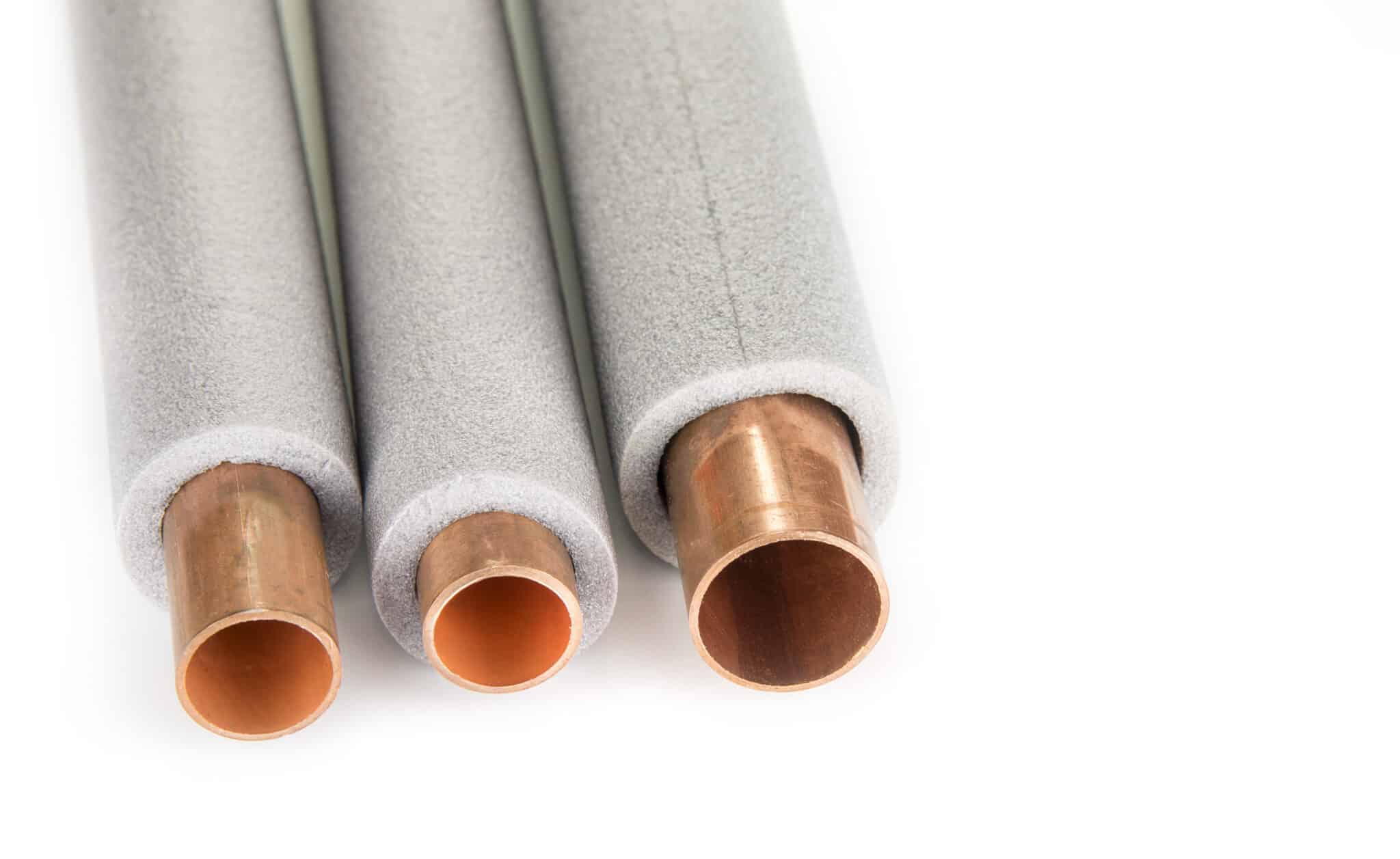Top 3 Benefits of Pipe Insulation in Arizona

Are you prepared for what Arizona’s extreme weather does to your plumbing? Summer heat stresses pipes, while sudden winter freezes can cause them to burst, leading to costly repairs and wasted energy. The solution? Pipe insulation. This essential safeguard minimizes heat loss, prevents freezing, and stops condensation from causing mold and corrosion. For homeowners in Bullhead City, where weather fluctuations are the norm, pipe insulation is not just a smart upgrade—it is a necessity. Protect your home, save on energy costs, and ensure your plumbing stands strong against Arizona’s toughest conditions. Do not wait—act now to insulate your pipes.

Photo from iStock – Credit: Lex20
Benefit 1: Energy Efficiency
Uninsulated pipes are a hidden drain on your energy bills, especially in climates like Arizona’s. Installing pipe insulation is a transformative upgrade that delivers immediate and long-lasting benefits.
-
Reduces Heat Loss
Without insulation, hot water pipes lose a significant amount of heat, causing your water heater to work harder than necessary. Pipe insulation can cut heat loss by up to 80%, ensuring that water stays hotter for longer. This efficiency reduces energy waste and improves overall system performance.
-
Lowers Energy Costs
Insulated pipes translate directly into lower utility bills. Studies show that homeowners can save 4-10% annually on energy expenses by insulating their pipes. For Bullhead City residents, where extreme temperatures can spike energy demands, this improvement provides substantial financial relief.
-
Boosts System Efficiency
Pipe insulation does not just conserve energy; it enhances the performance and longevity of your plumbing system. By reducing the workload on your water heater, insulation prevents unnecessary strain, lowering the risk of breakdowns and extending the appliance’s lifespan.
-
Supports Sustainability
Lowering energy consumption through pipe insulation also reduces your carbon footprint, making it a greener choice for your household. It is a small upgrade with a big impact on energy conservation and environmental protection.
-
Provides Long-Term Value
With its ability to save energy, lower costs, and improve system durability, pipe insulation pays for itself over time. It is a one-time investment that delivers continuous benefits, making your home more efficient, eco-friendly, and cost-effective.
For Bullhead City homeowners, pipe insulation is not just a smart choice—it is a must-have for year-round energy savings and reliable plumbing.
Benefit 2: Freeze Protection
Arizona’s warm climate may dominate most of the year, but occasional winter cold snaps—especially in December—can wreak havoc on unprotected plumbing systems. Even brief temperature drops can freeze exposed pipes, leading to cracks, bursts, and extensive water damage. For Bullhead City residents, where weather extremes are the norm, pipe insulation provides critical protection against these costly risks.
-
Prevents Pipe Freezing
Pipe insulation acts as a thermal barrier, trapping heat within the pipes and preventing freezing during sudden cold spells. This protection ensures that water flows freely even when temperatures dip unexpectedly.
-
Avoids Catastrophic Pipe Bursts
Frozen water expands, creating immense pressure that can cause pipes to burst. Insulation minimizes this risk by maintaining a stable temperature within the plumbing system. This small precaution can save homeowners thousands in repair and water damage costs.
-
Essential for Bullhead City Homes
While cold snaps in Arizona are less frequent than in other states, they can be just as damaging. For Bullhead City and similar areas, where temperatures fluctuate, having insulated pipes ensures year-round plumbing reliability and peace of mind.
-
Saves Time and Stress
The aftermath of a burst pipe can disrupt daily life with costly repairs and cleanup. Pipe insulation eliminates this worry by preventing the problem before it starts.
Investing in pipe insulation is an effective way to protect your home from unpredictable winter weather. It is a safeguard that not only preserves your plumbing but also saves you from the stress and expense of emergency repairs.
Benefit 3: Condensation Control
Condensation on cold water pipes is more than just a nuisance—it is a hidden threat to your home and health. When warm, humid air interacts with the cold surface of uninsulated pipes, condensation forms, creating an ideal environment for mold, mildew, and structural damage. Pipe insulation eliminates this problem by maintaining a consistent pipe temperature, stopping condensation before it starts.
Eliminates Moisture Issues
Pipe insulation acts as a thermal barrier, preventing the pipe surface from reaching the dew point. This simple fix stops condensation from forming, keeping surrounding surfaces dry and protected from water damage.
Prevents Mold Growth
Persistent dampness from condensation encourages mold and mildew growth, which can quickly spread to walls, floors, and ceilings. Insulated pipes cut off the moisture source, helping to maintain a mold-free home and safeguarding your indoor air quality.
Protects Structural Integrity
Water damage from condensation can compromise the integrity of wood, drywall, and insulation over time. Pipe insulation prevents this moisture from seeping into these materials, saving you from costly repairs and preserving your home’s value.
Improves Health and Comfort
Mold and mildew can trigger respiratory issues, allergies, and other health problems. By eliminating the root cause of these risks, pipe insulation promotes a healthier living environment for you and your family.
Reduces Maintenance Needs
Without condensation issues, you spend less time dealing with water cleanup, mold removal, or damaged building materials. Pipe insulation offers a long-term solution that minimizes household maintenance.
For Bullhead City homeowners, where temperature swings can intensify condensation, pipe insulation is a straightforward yet impactful investment. It protects your home, promotes health, and ensures peace of mind for years to come.

Photo from iStock – Credit: undefined undefined
Types of Pipe Insulation Materials
Choosing the right material for pipe insulation is critical for ensuring your plumbing system performs efficiently, especially in Arizona’s unique climate. Each material has specific strengths and limitations, making it important to match the insulation type with your home’s needs. Below is a breakdown of the most popular options and how they perform in different conditions:
- Foam Pipe Insulation:
- Overview: Foam insulation, often made from polyethylene or elastomeric foam, is lightweight, flexible, and easy to install.
- Pros: It is excellent for preventing heat loss and condensation, is affordable and is widely available for DIY or professional installations.
- Cons: Foam is not designed to handle extremely high temperatures and can degrade under direct UV exposure without proper covering.
- Best Use in Arizona: Perfect for indoor pipes where high temperatures are not a concern. Works especially well for reducing energy loss in water pipes.
- Rubber Pipe Insulation:
- Overview: Rubber insulation, crafted from closed-cell rubber, is durable, flexible, and highly resistant to moisture.
- Pros: This material can handle high and low temperatures, resists condensation, and adapts to pipe expansion and contraction.
- Cons: It is pricier than foam and may require more expertise for proper installation.
- Best Use in Arizona: Ideal for outdoor pipes or those exposed to fluctuating temperatures, ensuring reliable performance year-round.
- Fiberglass Pipe Insulation:
- Overview: Made from spun glass fibers, fiberglass insulation includes a protective vapor barrier for enhanced thermal efficiency.
- Pros: It withstands both extreme heat and cold, making it suitable for demanding applications like industrial or hot-water pipes.
- Cons: Fiberglass can be difficult to install, bulky, and requires careful handling due to its fibrous composition.
- Best Use in Arizona: Recommended for high-temperature pipes near water heaters or HVAC systems where maximum insulation is needed.
Recommendations for Arizona’s Climate:
For homes in Bullhead City, foam insulation is an excellent choice for indoor pipes due to its cost-effectiveness and ease of use. For outdoor pipes or those exposed to varying temperatures, rubber insulation provides superior durability and moisture resistance. When dealing with high-temperature systems, fiberglass insulation offers unmatched thermal performance and reliability.
Investing in the right pipe insulation material not only improves energy efficiency but also extends the lifespan of your plumbing system. Selecting the appropriate option for Arizona’s climate ensures you are prepared for the challenges of both extreme heat and occasional cold snaps.
Maintenance Tips for Insulated Pipes
Your pipe insulation is a crucial shield for your plumbing system, safeguarding it from extreme temperatures, moisture, and costly damage. However, insulation is not a set-it-and-forget-it solution. Regular maintenance ensures it continues to perform at its best, especially in Arizona’s challenging climate. By following these tips, you can extend the lifespan of your insulation and avoid unnecessary expenses.
-
Inspect for Damage Regularly
Over time, insulation can degrade due to exposure to sunlight, moisture, or wear and tear. Look for cracks, gaps, or areas where the insulation has thinned or pulled away from the pipes. These vulnerabilities can reduce its effectiveness, leading to energy loss or condensation issues.
-
Replace Compromised Sections
Damaged insulation is not just ineffective—it can exacerbate problems by trapping moisture or allowing pipes to freeze. Replace worn sections immediately with high-quality materials, such as UV-resistant foam or rubber, to ensure durability.
-
Check for Moisture or Leaks
Condensation or leaks can quickly undermine even the best insulation. Ensure the vapor barrier on your insulation is intact and address any signs of moisture buildup. Left unchecked, moisture can lead to mold, mildew, and structural damage.
-
Pest-Proof Your Pipes
Insulated pipes can attract rodents or insects looking for nesting material, especially during cooler months. Inspect for signs of pests and seal any gaps in the surrounding area. Preventing infestations protects both your insulation and your plumbing.
-
Prepare for Seasonal Extremes
Arizona’s weather can be unpredictable, with sudden cold snaps during winter. Before the seasons change, ensure that all exposed pipes are fully covered and the insulation is secure. This proactive step prevents freezing and burst pipes.
-
Upgrade Older Insulation
If your insulation has been in place for years, it may no longer provide optimal performance. Modern materials like closed-cell rubber or fiberglass offer superior durability and efficiency, making them ideal for Arizona’s demanding climate.
-
Schedule Professional Maintenance
A professional inspection by experts like Benjamin Franklin Plumbing of Mohave County can identify hidden issues and ensure your insulation is performing at its best. Professionals can also recommend tailored solutions for your home’s unique needs.
Why Maintenance Matters:
Ignoring insulated pipes can lead to unexpected energy loss, water damage, or plumbing failures during cold weather. Regular maintenance preserves your investment by preventing problems before they occur. With well-maintained pipe insulation, you will save on utility costs, avoid emergency repairs, and enjoy peace of mind knowing your plumbing is protected year-round.
For homeowners in Bullhead City, maintaining your pipe insulation is not just about efficiency—it is about ensuring your home is ready for whatever Arizona’s climate throws your way.
Cost Considerations
Investing in pipe insulation is one of the most cost-effective ways to protect your plumbing system and improve energy efficiency. While there are upfront expenses, the long-term savings and benefits make it a smart investment for homeowners in Arizona.
Affordable Upfront Investment
The cost of pipe insulation depends on factors like the material, pipe size, and installation method. Foam insulation is budget-friendly, while rubber and fiberglass options are more durable but slightly pricier. Professional installation ensures optimal performance but may add to the initial cost.
Energy Savings Over Time
Properly insulated pipes reduce heat loss, leading to lower energy bills. Studies show homeowners can save up to 10% annually on heating costs. In Bullhead City, where extreme weather can increase energy use, these savings quickly add up.
Avoid Costly Repairs
The expense of repairing burst pipes or addressing water damage far exceeds the cost of insulation. Condensation-related mold or freezing pipes can lead to significant repair bills—insulation eliminates these risks.
Enhanced Home Value
A well-maintained plumbing system with insulated pipes adds value to your home by showcasing its energy efficiency and durability.
For Bullhead City residents, pipe insulation is not just a purchase—it is a safeguard against rising energy costs and plumbing emergencies.
Environmental Impact
Choosing pipe insulation for your home is not just about saving money—it is also a decision that significantly benefits the environment. By reducing energy waste and conserving resources, insulated pipes contribute to a more sustainable future. Here is a closer look at how this small upgrade creates a ripple effect of positive environmental impacts:
Cuts Energy Consumption
Insulated pipes reduce heat loss, meaning less energy is needed to heat water. With heating and cooling accounting for a significant portion of household energy use, this efficiency can dramatically lower energy demands. In Arizona, where temperature extremes often push energy consumption higher, insulated pipes make a measurable difference.
Lowers Carbon Footprint
When homes use less energy, the demand on power plants decreases, reducing greenhouse gas emissions. For homeowners in Bullhead City, every step toward energy efficiency—like pipe insulation—helps mitigate the impact of climate change by cutting back on fossil fuel reliance.
Preserves Water Resources
Insulated pipes maintain consistent water temperatures, reducing the time spent waiting for hot water. This efficiency minimizes water waste, which is especially critical in arid climates like Arizona. Every gallon saved helps conserve this precious resource for future generations.
Reduces Waste from Repairs
Pipes with insulation are better protected against freezing and condensation-related damage. Fewer repairs mean less waste from discarded materials and fewer resources used for replacements. This durability aligns with sustainable living principles.
Promotes Long-Term Sustainability
Pipe insulation is a one-time upgrade with enduring environmental benefits. Its ability to conserve energy and water supports a greener lifestyle while reducing the environmental strain of overused resources. For Bullhead City residents, this means aligning home improvements with environmental responsibility.
A Sustainable Choice for Arizona Homes
Installing pipe insulation is a practical way to reduce your home’s energy usage, conserve water, and lower greenhouse gas emissions. For homeowners committed to sustainability, it is a simple yet impactful step toward a greener future.
Frequently Asked Questions (FAQ)
-
How long does pipe insulation last?
The lifespan of pipe insulation depends on the material and environmental conditions. Foam and rubber insulation typically last 10-15 years with proper maintenance, while fiberglass can last even longer in controlled conditions. Regular inspections can help you identify when it is time for repairs or replacement, ensuring consistent performance.
-
Can pipe insulation prevent all freezing issues?
Pipe insulation significantly reduces the risk of freezing by maintaining a stable temperature around your pipes. However, in extremely cold conditions, additional measures like heat tape or increased heating in exposed areas may be necessary. For Bullhead City homeowners, pipe insulation alone is usually sufficient to handle Arizona’s occasional cold snaps.
-
Is pipe insulation necessary for both hot and cold water pipes?
Yes, insulating both hot and cold water pipes is highly recommended. For hot water pipes, insulation reduces heat loss and improves energy efficiency. For cold water pipes, it prevents condensation, which can lead to mold growth and water damage. Protecting both ensures a well-maintained and efficient plumbing system.
-
What is the best insulation material for Arizona’s climate?
For Arizona’s climate, foam insulation works well for indoor pipes due to its affordability and ease of use. Rubber insulation is ideal for outdoor or exposed pipes because of its durability and resistance to temperature changes. Fiberglass is best for high-temperature applications like hot water pipes near heaters.
-
How can I tell if my pipes are already insulated?
To check if your pipes are insulated, visually inspect them for a covering. Insulated pipes are often wrapped in foam, rubber, or fiberglass. For hidden pipes, you may need to consult a professional plumber to assess your plumbing system and recommend any necessary upgrades.
Protect your plumbing and improve energy efficiency with professional pipe insulation. Contact Benjamin Franklin Plumbing of Mohave County today for expert solutions tailored to your needs!


















